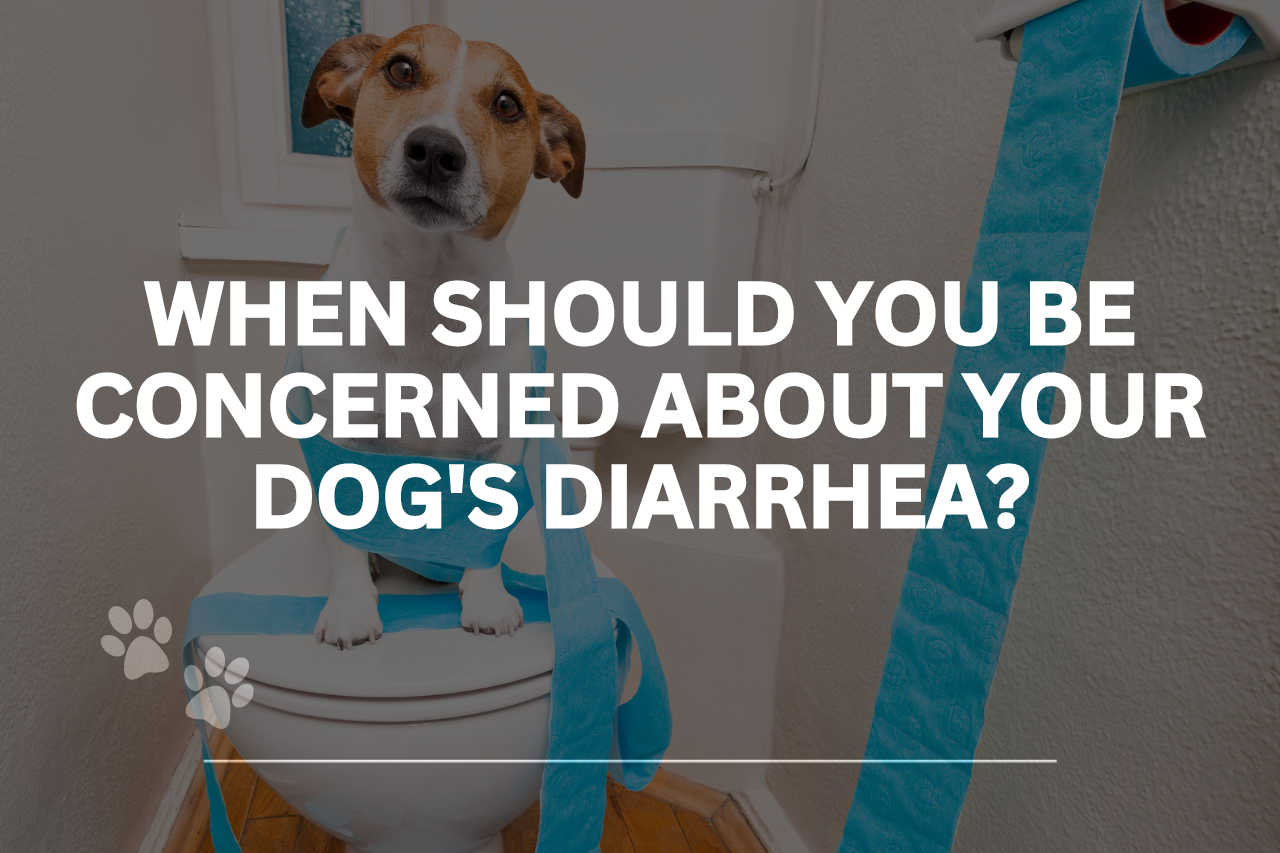
When Should You Be Concerned About Your Dog’s Diarrhea? Essential Insights and Practical Tips for Pet Owners
Diarrhea is a common issue that many dog owners encounter at some point. It’s a condition that can range from a mild, temporary upset to a symptom of a more serious health problem.
While it’s natural for dogs to experience occasional digestive disturbances, pet owners must know when this common ailment crosses the line into a cause for concern. Understanding the difference between a minor digestive hiccup and a potentially dangerous health issue can help you ensure the well-being of your furry friend.
In this article, we’ll explore the various aspects of dog diarrhea, providing you with the knowledge you need to make informed decisions about your pet’s health. So, let’s dive into the world of canine digestion and discover when it’s time to worry about your dog’s diarrhea.
Understanding Dog Diarrhea
Definition and Common Causes
Diarrhea in dogs is characterized by loose or watery stools that occur more frequently than normal. This condition can be triggered by a variety of factors, ranging from dietary indiscretions to more serious underlying health issues. Common causes include:
Dietary Changes: Sudden changes in diet or consuming inappropriate foods, such as table scraps or garbage, can disrupt your dog’s digestive system.
Infections: Bacterial, viral, or parasitic infections, such as parvovirus or giardia, can lead to diarrhea.
Stress: Emotional stress or anxiety can cause gastrointestinal upset in dogs.
Medications: Certain medications, like antibiotics, can disrupt the normal balance of gut bacteria, resulting in diarrhea.
Toxins: Ingestion of toxic substances, such as certain plants or household chemicals, can lead to severe diarrhea.
Types of Diarrhea
Understanding the type of diarrhea your dog is experiencing can provide valuable insights into its severity and potential causes:
Acute vs. Chronic: Acute diarrhea is sudden and typically lasts a few days, while chronic diarrhea persists for several weeks or longer, often indicating an underlying health issue.
Mild vs. Severe: Mild diarrhea may involve slightly loose stools and minimal changes in your dog’s behavior, while severe diarrhea is characterized by frequent, watery stools, often accompanied by other symptoms such as vomiting, lethargy, or weight loss.
Recognizing these distinctions is crucial for determining the appropriate course of action. Acute, mild diarrhea may resolve on its own with simple dietary adjustments, whereas chronic or severe cases warrant a visit to the veterinarian for further investigation and treatment.
Symptoms to Watch For
While diarrhea itself is a concern, certain accompanying symptoms can indicate a more serious health issue. It’s important to monitor your dog closely and seek veterinary care if you notice any of the following:
Accompanying Symptoms
Vomiting: Frequent vomiting in addition to diarrhea can lead to dehydration and indicate a more severe underlying condition.
Lethargy: If your dog is less active than usual or seems weak, it could be a sign of a more serious illness.
Loss of Appetite: A decrease in appetite or refusal to eat is a concerning sign, especially when combined with diarrhea.
Abdominal Pain: If your dog appears uncomfortable or is vocalizing more when touched, it may be experiencing abdominal pain.
Signs of Dehydration and Blood in Stool
Dehydration: Symptoms of dehydration include dry gums, sunken eyes, and reduced skin elasticity. If you gently pinch your dog’s skin and it doesn’t quickly return to its normal position, your dog may be dehydrated.
Blood in Stool: The presence of blood in the stool, whether it’s bright red or dark and tarry, is a red flag that warrants immediate veterinary attention.
If you observe any of these symptoms alongside diarrhea, it’s crucial to act promptly. These signs can indicate a range of issues, from infections and parasites to more serious conditions like pancreatitis or intestinal blockages. Early detection and treatment are key to ensuring your dog’s health and well-being.
When to Worry
Immediate Veterinary Attention
While occasional mild diarrhea may not be a cause for alarm, there are certain situations where immediate veterinary attention is necessary:
Persistent Diarrhea: If your dog’s diarrhea lasts more than 48 hours, it’s time to consult your veterinarian. Prolonged diarrhea can lead to dehydration and other complications.
Severe Symptoms: If diarrhea is accompanied by vomiting, lethargy, fever, or signs of pain (such as whining or a hunched back), these could indicate a more serious condition.
Blood in Stool: The presence of blood, whether bright red or dark and tarry, is a red flag that requires prompt veterinary care.
Suspected Poisoning: If you suspect your dog has ingested a toxic substance, seek immediate veterinary assistance, even if symptoms haven’t appeared yet.
How Long is Too Long?
The duration of diarrhea can vary depending on its cause, but as a general rule, any diarrhea lasting more than 48 hours warrants a visit to the vet. Chronic diarrhea, which persists for weeks or recurs frequently, is especially concerning and requires a thorough investigation to identify any underlying health issues.
In cases of acute diarrhea, keep a close eye on your dog’s overall condition. If they remain active, hydrated, and otherwise healthy, you may be able to manage the situation at home with dietary adjustments. However, if there’s no improvement within a day or two, or if your dog’s condition worsens, it’s time to seek professional help.
Remember, timely intervention can make a significant difference in your dog’s recovery. By staying vigilant and knowing when to worry, you can ensure the best possible outcome for your furry friend’s health.
Home Care and Management
Dietary Changes and Hydration Tips
When your dog is experiencing diarrhea, it’s crucial to focus on their diet and hydration to help manage the condition:
Bland Diet: Temporarily switch to a bland diet consisting of boiled white rice and lean-boiled chicken or ground turkey. This can help soothe your dog’s digestive system and firm up their stools.
Gradual Reintroduction: After a couple of days on a bland diet, gradually reintroduce your dog’s regular food over a few days to avoid further digestive upset.
Hydration: Diarrhea can lead to dehydration, so ensure your dog has constant access to clean, fresh water. Monitor their water intake and encourage drinking if necessary.
Over-the-Counter Remedies and When to Use Them
Several over-the-counter remedies can help manage mild cases of diarrhea in dogs, but it’s essential to use them cautiously and under the guidance of a veterinarian:
Probiotics: These can help restore the balance of healthy bacteria in your dog’s gut, aiding in digestion and stool formation.
Pumpkin: Canned pumpkin (not pumpkin pie filling) is high in fiber and can help firm up your dog’s stools. Add a small amount to their food as a dietary supplement.
Anti-Diarrheal Medications: Over-the-counter medications like loperamide (Imodium) can be used in some cases, but it’s important to consult your vet for the correct dosage and to ensure it’s safe for your dog.
Remember, these home care measures are suitable for managing mild, uncomplicated cases of diarrhea. If your dog’s condition doesn’t improve within a couple of days, or if they exhibit any severe symptoms, seek veterinary attention immediately.
Prevention and Long-Term Health
Dietary Recommendations and Regular Vet Check-Ups
Maintaining a balanced diet is key to preventing diarrhea and ensuring your dog’s long-term health. High-quality dog food that’s appropriate for your pet’s age, size, and activity level can promote a healthy digestive system. Avoid feeding your dog table scraps or foods that are high in fat, as these can upset their stomach.
Regular vet check-ups are also crucial for monitoring your dog’s overall health and catching any potential issues early on. During these visits, your vet can provide personalized dietary recommendations and ensure your dog is maintaining a healthy weight.
Importance of Vaccinations and Parasite Control
Vaccinations play a vital role in protecting your dog from infectious diseases that can cause diarrhea, such as parvovirus and distemper. Keep your dog’s vaccinations up to date and follow your vet’s recommended schedule.
Parasite control is equally important, as intestinal worms and other parasites are common causes of diarrhea in dogs. Regular deworming and preventive treatments for fleas and ticks can help keep these parasites at bay.
By adhering to these preventative measures and being attentive to your dog’s diet and health, you can significantly reduce the risk of diarrhea and ensure your pet enjoys a happy, healthy life.
Conclusion
In wrapping up, it’s clear that while diarrhea in dogs is a common issue, understanding its causes, symptoms, and appropriate responses can make a world of difference in handling it effectively. We’ve highlighted the importance of distinguishing between mild and severe cases, the role of diet and hydration in management, and the crucial steps for prevention.
Remember, while many instances of diarrhea can be managed at home with careful attention and care, persistent or severe symptoms should prompt a visit to the vet. This proactive approach ensures your dog receives the best possible care, safeguarding their health and well-being.






